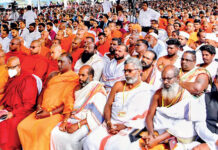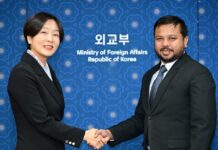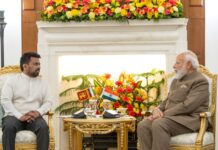The fifth anniversary of the forcibly cremated 278 janazas was observed on the 6th of this month, focusing on the first forcible cremation on 31st March 2020.
The following demands were made as a declaration following this remembrance event, jointly organized by civil society organizations of the Muslim community. 17 civil society organizations of the Muslim community have jointly issued this declaration.

The “Declaration on Commemoration of the Victims of Forced Cremations in Sri Lanka” calls upon the Government to investigate and deliver justice for depriving COVID-19 victims of their right to a dignified burial.
The first Muslim to be forcibly cremated in Sri Lanka due to COVID-19 was Mohammed Jamal from Negombo. He passed away on March 30, 2020, and his body was cremated without the consent of his family, despite guidelines released on March 27 permitting burial. At the time, no other country had mandated such a policy, and it contradicted World Health Organization (WHO) guidelines, which permitted both burial and cremation for COVID-19 victims. The following day, the Ministry of Health issued regulations making cremation the only method for disposing of COVID-19 victims in Sri Lanka. This directive particularly affected the Muslim community, for whom cremation is against their religious beliefs. The policy was met with significant national and international criticism, as it lacked scientific justification and contravened WHO recommendations.
In Islam, cremation is strictly prohibited and is considered haram (forbidden). The religion mandates that the deceased be treated with the same respect and dignity as the living, which includes specific rites such as washing, shrouding, performing the funeral prayer (Salat al-Janazah), and burial. The prohibition of cremation is rooted in the belief that burning the body violates its sanctity, and cremation is viewed as a transgression against this principle.
The forced cremation policy in Sri Lanka was also addressed by the UN Human Rights Council (UNHRC) in Operative Paragraph 8 of Resolution No. 46/1 adopted in 2021, expressing concern that:
“The response to the COVID-19 pandemic has had an impact on freedom of religion or belief and exacerbated the prevailing marginalization and discrimination against the Muslim community, and that cremations for those deceased from COVID-19 have prevented Muslims and members of other religions from practicing their own religious burial rites, and has disproportionately affected religious minorities and exacerbated distress and tensions.”
Despite public outcry in Sri Lanka and internationally, and clear guidance from the WHO that burial of COVID-19 victims posed no contamination or public health risk, the Government refused to permit burials. This stance persisted even after several medical experts and organizations, including the Sri Lanka Medical Association and the College of Community Physicians, confirmed that burials entailed no public health risk.
In February 2021, the Sri Lankan government ended the forced cremation policy, allowing burials for COVID-19 victims. However, burial was allowed only in Oddamavadi in the Eastern Province of Sri Lanka. 
These policies of the Government caused considerable distress among minority communities, as cremation and burial far away from home did not allow the families of the deceased to visit the graves of their loved ones to pray for them, as is strongly encouraged in Islam. In July 2024, the subsequent Government formally apologized to the Muslim community for enforcing cremations against their religious practices and announced plans to ensure that such actions would not recur in the future.
Justice and reparation are crucial to heal from this very traumatic time as one of the many unjust and cruel phases in our history, so that all citizens of this country can move forward with dignity.
We, the undersigned, comprising Muslim Civil Society, Religious leaders, Community Leaders, Activists, and Family Members affected by the compulsory “Forced Cremations” imposed on victims of the Corona virus disease (COVID-19) in Sri Lanka—express our profound disgust at the violations of fundamental human rights perpetrated during this period. This policy led to nearly 300 individuals including a newborn baby, being cremated against the wishes and without the consent of their families, violating fundamental rights enshrined in the Constitution
of Sri Lanka. On this fifth anniversary of the implementation of forced cremations, we solemnly remember the pain and suffering endured by all Sri Lankans throughout 2020.
We, therefore, urge the Government of Sri Lanka to take the following actions:
- Conduct an independent, credible investigation into how and why, contrary to law, forced cremations were enforced. This investigation must address all aspects of justice, including guarantees of non-recurrence, and attribute clear responsibility and accountability on those responsible for the violations.
- Identify and bring to justice those responsible for implementing and enforcing this inhumane policy, including officials and decision-makers who ignored scientific evidence and human rights.
- Declare March 31st as a National Day of Remembrance of the forcibly cremated in memory of the victims and as a commitment to prevent such injustices in the future.
- Erect a national memorial inscribed with the names of the victims to honor their memory and acknowledge the suffering of their families, accessible to all communities in Sri Lanka.
We resolve that this Declaration serves as a solemn commitment to justice, dignity, and the protection of fundamental rights in Sri Lanka. We extend our sincerest gratitude to all conscientious individuals and the international community who stood with the victimized community in Sri Lanka.
While we urge the Government to take action, we affirm our commitment to continue engaging on this concern and look forward to their understanding and cooperation.



